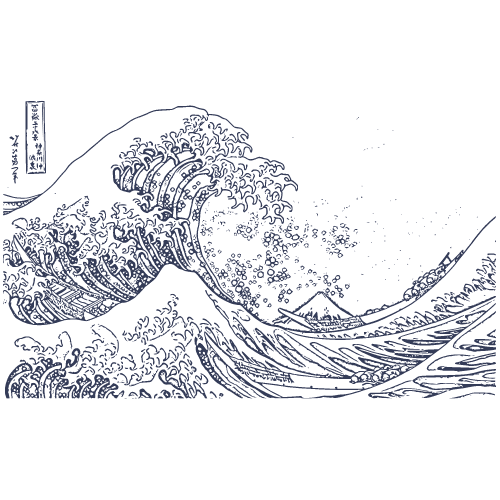
Military sonar exercises continue to imperil marine life and bottom trawling scars the ocean floor. But the calm water is a siren waking me before dawn. I rustle together my scuba gear and head to Maalaea Harbor to catch the first boat to Molokini Crater. An exuberant crew escorts a dozen of us on board. Like kindergarteners on a fieldtrip, chaos unfolds as we find our seats, the bathroom, and where to store equipment while getting fitted with tanks, regulators, and BCDs.
It’s the perfect morning for a dive: a hot, cloudless, and windless day. Only a few people are wearing wetsuits. I see neon-colored bikinis and the sunburned shoulders of tanners who stayed too long by the pool the day before. Seaside fashion also sails forth: a lime green bucket hat, a chartreuse tank top, t-shirts celebrating sea life instead of the latest rock legend. The boat becomes the beach on days like this, and a sense of ease, well-being, and bubbling excitement fill the craft. Even though we are jarred by the boat powering its way to the crater, elbows and backs colliding as we rub in sunblock and don gear, no one is complaining. If anything, the jostling heightens our anticipation of the open water.
While I’m doing the final check of my gear, a woman says, “This will be my tenth time to dive Molokini.” One of the crew says, “You can never grow tired of diving Molokini!”
It’s my turn to fall backward into the ocean.
“Let yourself get down between fifty and seventy-five feet,” the dive master says. “If you’re lucky – and I think you will be – you’ll see a nurse shark or two this morning. They’re not out every day.”
He gives me the sign to descend, and I begin to drift down the crater wall. Breathing slow full breaths, I look around and then above to see other divers fall into the ocean, their splashes an explosion of joy. Within minutes we are all together. Our divemaster checks in, and we share our simple sign language assuring we are okay.
It hardly requires any effort, just breathing and a small flap of a fin now and again. The fish are highly depleted compared to when I was here almost a decade ago. But the scene is no less magical, with coral, tropical fish, and yes, a nurse shark and even a manta ray. Today, I don’t feel as much despair about our dying planet. I am amazed how little we seek experiences that might galvanize us to save millions of species at risk of extinction. This simple act of diving transforms me. As I slowly drift along the wall of Molokini, sun shafts of cathedral light feel sacred, and the planet not forsaken.
